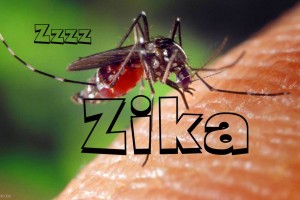- Home
- Editorial
- News
- Practice Guidelines
- Anesthesiology Guidelines
- Cancer Guidelines
- Cardiac Sciences Guidelines
- Critical Care Guidelines
- Dentistry Guidelines
- Dermatology Guidelines
- Diabetes and Endo Guidelines
- Diagnostics Guidelines
- ENT Guidelines
- Featured Practice Guidelines
- Gastroenterology Guidelines
- Geriatrics Guidelines
- Medicine Guidelines
- Nephrology Guidelines
- Neurosciences Guidelines
- Obs and Gynae Guidelines
- Ophthalmology Guidelines
- Orthopaedics Guidelines
- Paediatrics Guidelines
- Psychiatry Guidelines
- Pulmonology Guidelines
- Radiology Guidelines
- Surgery Guidelines
- Urology Guidelines
WHO urges use of polio detection systems to screen for Zika-linked disorder

Geneva : A neurological condition linked to the mosquito-borne Zika virus could be targeted globally with existing national programmes for detecting polio, a paper co-authored by World Health Organization researchers said.
Guillain-Barre syndrome is a rare neurological condition, most common in adults, that can cause temporary paralysis. Some victims may need intensive care for breathing difficulties, but most people recover fully, the WHO says.
The WHO, which declared an international emergency over Zika on Feb. 1, says there is strong scientific consensus that Zika can cause the birth defect microcephaly in babies, a condition defined by unusually small heads that can result in developmental problems, and could cause Guillain-Barre.
Active Zika outbreaks have been reported in at least 49 countries, most of them in the Americas, according to the U.S. Centers for Disease Control and Prevention (CDC).
Surveillance systems in place in 177 out of 194 WHO member states currently check for acute flaccid paralysis (AFP) as part of the U.N. agency's global polio eradication programme. The stools of children younger than 15 years are analysed in laboratory to confirm polio or identify non-polio AFP cases, which include Guillain-Barre syndrome cases.
"With increasing evidence of linkages between Guillain-Barre syndrome and Zika virus infection, it is imperative to enhance Guillain-Barre syndrome surveillance," WHO researchers led by Nirmal Kandel said in a paper posted on the WHO website.
"This can be done using existing surveillance systems like the one for acute flaccid paralysis (AFP) used by polio eradication programmes. Further investigation of AFP cases classified as being due to Guillain-Barre syndrome can be a starting point to test for Zika virus."
Polio surveillance systems in countries present a platform for global disease detection, monitoring and response, the researchers said, noting that reporting systems and laboratory facilities are in place.
Last year, 99,582 cases of acute flaccid paralysis were detected worldwide in children, including 72 cases of wild poliovirus confirmed in a laboratory, the WHO paper said.
In the Americas region where the Zika virus is spreading the annual rate of acute flaccid paralyis has been reported at between 0.8 and 1.1 per 100,000 children.
The connection between Zika and microcephaly first came to light last year in Brazil, which has now confirmed more than 1,600 cases of microcephaly that it considers to be related to Zika infections in the mothers.
Brazil will host the 2016 Summer Olympics starting Aug. 5.

Disclaimer: This site is primarily intended for healthcare professionals. Any content/information on this website does not replace the advice of medical and/or health professionals and should not be construed as medical/diagnostic advice/endorsement or prescription. Use of this site is subject to our terms of use, privacy policy, advertisement policy. © 2020 Minerva Medical Treatment Pvt Ltd